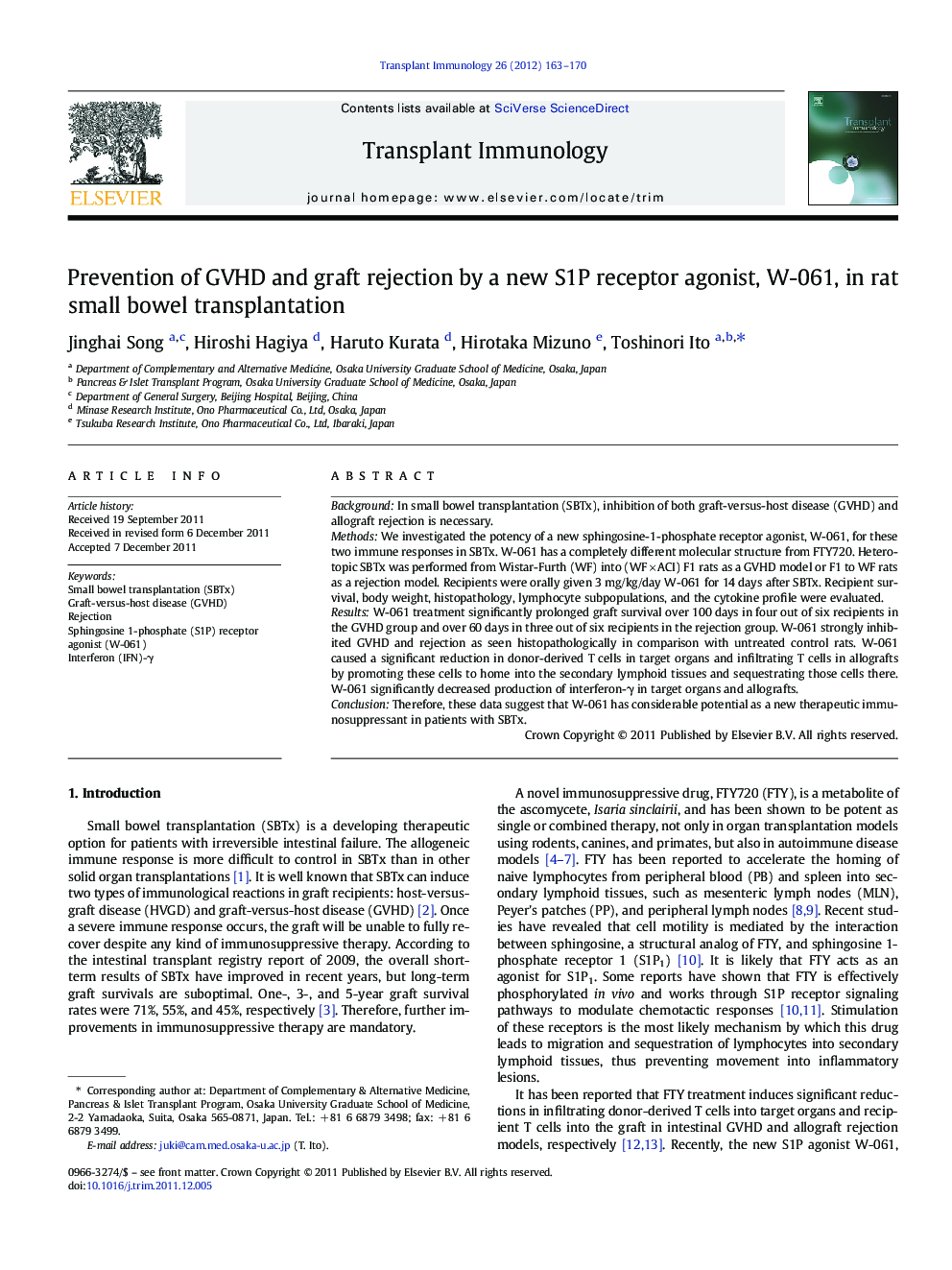| Article ID | Journal | Published Year | Pages | File Type |
|---|---|---|---|---|
| 3392181 | Transplant Immunology | 2012 | 8 Pages |
BackgroundIn small bowel transplantation (SBTx), inhibition of both graft-versus-host disease (GVHD) and allograft rejection is necessary.MethodsWe investigated the potency of a new sphingosine-1-phosphate receptor agonist, W-061, for these two immune responses in SBTx. W-061 has a completely different molecular structure from FTY720. Heterotopic SBTx was performed from Wistar-Furth (WF) into (WF × ACI) F1 rats as a GVHD model or F1 to WF rats as a rejection model. Recipients were orally given 3 mg/kg/day W-061 for 14 days after SBTx. Recipient survival, body weight, histopathology, lymphocyte subpopulations, and the cytokine profile were evaluated.ResultsW-061 treatment significantly prolonged graft survival over 100 days in four out of six recipients in the GVHD group and over 60 days in three out of six recipients in the rejection group. W-061 strongly inhibited GVHD and rejection as seen histopathologically in comparison with untreated control rats. W-061 caused a significant reduction in donor-derived T cells in target organs and infiltrating T cells in allografts by promoting these cells to home into the secondary lymphoid tissues and sequestrating those cells there. W-061 significantly decreased production of interferon-γ in target organs and allografts.ConclusionTherefore, these data suggest that W-061 has considerable potential as a new therapeutic immunosuppressant in patients with SBTx.
► A new S1P agonist, W-061 has a completely different molecular structure than FTY720. ► W-061 strongly inhibited GVHD and rejection in rat SBTx. ► W-061 reduced donor-derived T cells in target organs of GVHD. ► W-061 inhibited infiltrating T cells in allografts of rejection. ► W-061 decreased production of interferon-gamma in target organs and allografts.
